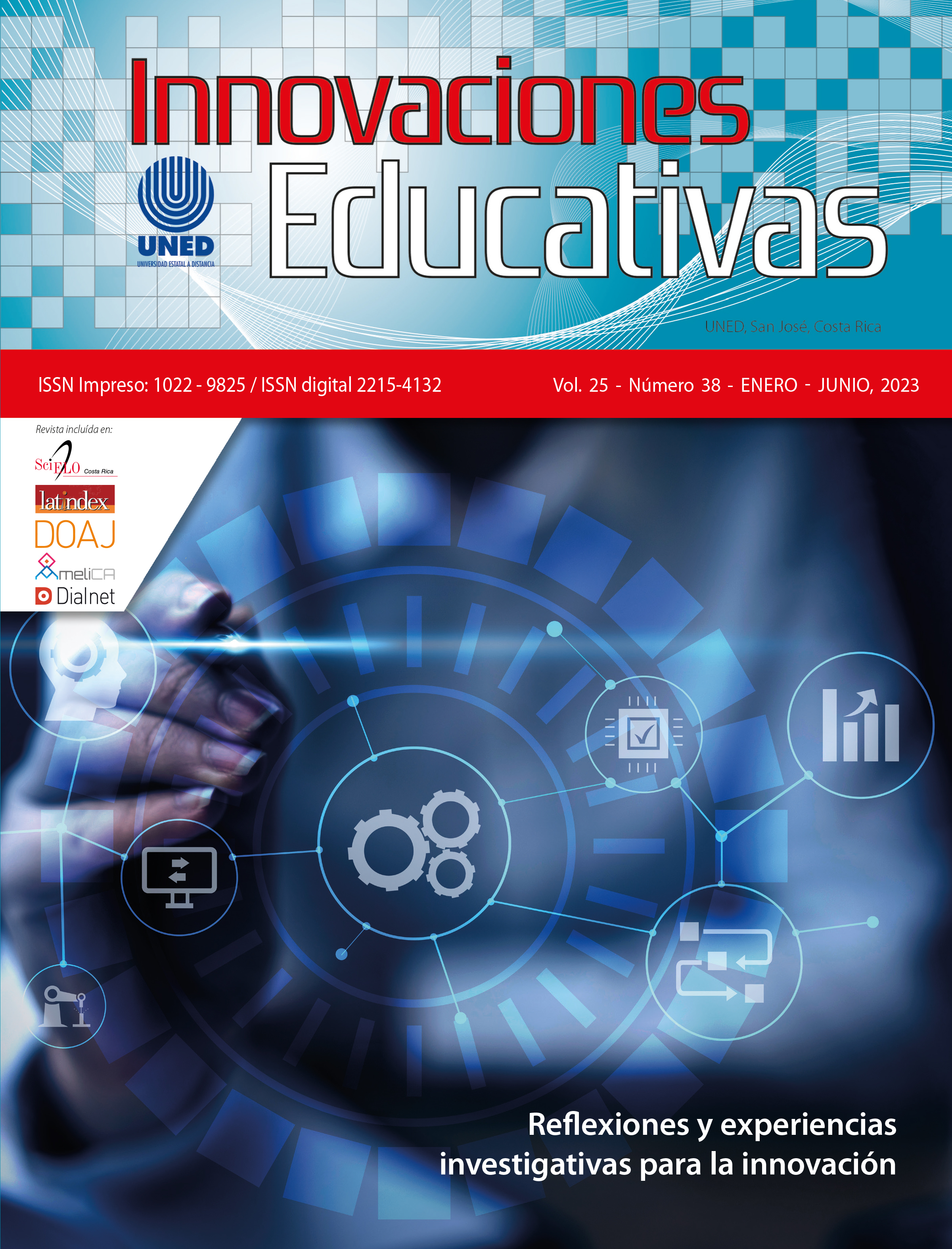Application of teaching innovation methodology: Training in psychological interview techniques through an escape game
DOI:
https://doi.org/10.22458/ie.v25i38.4247Keywords:
educational innovation, learning, motivation, interview, educational game, university student, psychologyAbstract
The psychological interview is an essential resource for any professional in psychology, whatever their field of action. However, a few available resources allow training the skills required for its correct application in a playful environment, where the students can learn from their mistakes to favor the learning process. The present work intended to create a virtual escape game through the Genially® platform. An overarching element of the escape game consisted of going through a series of tests related to the subject contents, which finally gave access to a final test in which the students must use the acquired strategies. The participants were 150 students in the 4th year of the Psychology Graduate Program at the University of Valencia. With the data obtained, descriptive analyzes of each of the missions were carried out considering content difficulty, the liking of the activities, the usefulness for learning, the motivation generated, the attractiveness of the format, and the generation of both pleasant and nasty emotions. The results indicate that the students were satisfied with this tool; it generated positive emotions, and they thought it improved their knowledge acquisition. In conclusion, this methodology encourages student participation in their own learning process, creating a flexible teaching tool that allows the acquisition of
References
Aud, S.; Hussar, W.; Johnson, F.; Kena, G.; Roth, E.; Manning, E.; Wang, X. y Zhang, J. (2012). The Condition of Education 2012 (NCES 2012-045). U.S. Department of Education, National Center for Education Statistics.
Huotari, K. y Hamari, J. (2012). Defining gamification: A service marketing perspective. Paper presented at the Proceeding of the 16th International Academic MindTrek Conference, 17-22.
Ibáñez, C. (Ed.), (2010). Técnicas de autoinforme en evaluación psicológica. La entrevista clínica. Guipuzkoa: Servicio Editorial de la Universidad del País Vasco.
Järvelä, S. (2015). How research on self-regulated learning can advance computer supported collaborative learning / El papel de la investigación sobre aprendizaje autorregulado en el desarrollo del aprendizaje colaborativo asistido por ordenador. Infancia y Aprendizaje, 38(2), 279-294.
Kapp, K. M. (2012). The Gamification of Learning and Instruction: Game-Based Methods and Strategies for Training and Education. Pfeiffer.
Llorens-Largo, F.; Gallego-Durán, F. J.; Villagrá-Arnedo, C. J.; Compañ-Rosique, P.; Satorre-Cuerda, R. y Molina-Carmona, R. (2016). Gamification of the learning process: lessons learned. VAEP-RITA, 4(1), 25-32.
Manzano, A. y Arrifano, P. J. (2022). Escape rooms educativos: una experiencia en una universidad portuguesa. Revista INFAD de Psicología. International Journal of Developmental and Educational Psychology, 1(1), 281-288.
Márquez, M. O. (2004). La entrevista. En R. Fernández-Ballesteros (Ed.), Evaluación psicológica. Conceptos, métodos y estudio de casos. Pirámide.
Morán, L. (2021). Prácticas evaluativas en contextos de aula invertida y aprendizaje móvil. Revista Innovaciones Educativas, 23(34), 98-112.
Oliva, M. (2010). La entrevista. En R. Fernández-Ballesteros (Dir.), Evaluación psicológica. Concepto, métodos y estudio de casos. Pirámide.
Onecha Pérez, B.; Sanz Prat, J. y López Valdés, D. (2019). Los límites de la ludificación en la enseñanza de la arquitectura. La técnica del Escape Room. ZARCH, (12), 122–133.
Palfrey, J. y Gasser, U. (2007). Born digital: Understanding the first generation of digital Natives. Basic Books.
Pérez-Vázquez, E.; Gilabert-Cerdá, A. y Lledó Carreres, A. (2019). Gamificación en la educación universitaria: El uso del escape room como estrategia de aprendizaje. En R. Roig-Vila (Ed.), Investigación e innovación en la Enseñanza Superior. Nuevos contextos, nuevas ideas. Octaedro.
Perpiñá, C. (2012). Manual de la entrevista Psicológica. Saber escuchar, saber preguntar. Pirámide.
Qian, M. y Clark, K. R. (2016). Game-based Learning and 21st century skills: A review of recent research. Computers in Human Behavior, 63, 50-58.
Sierra, M. C. y Fernández-Sánchez, M. R. (2019). Gamificando el aula universitaria. Análisis de una experiencia de Escape Room en educación superior. Revista de estudios y experiencias en educación, 18(36), 105-115.
Downloads
Published
How to Cite
Issue
Section
License
Copyright (c) 2023 Innovaciones Educativas

This work is licensed under a Creative Commons Attribution-NonCommercial-NoDerivatives 4.0 International License.

